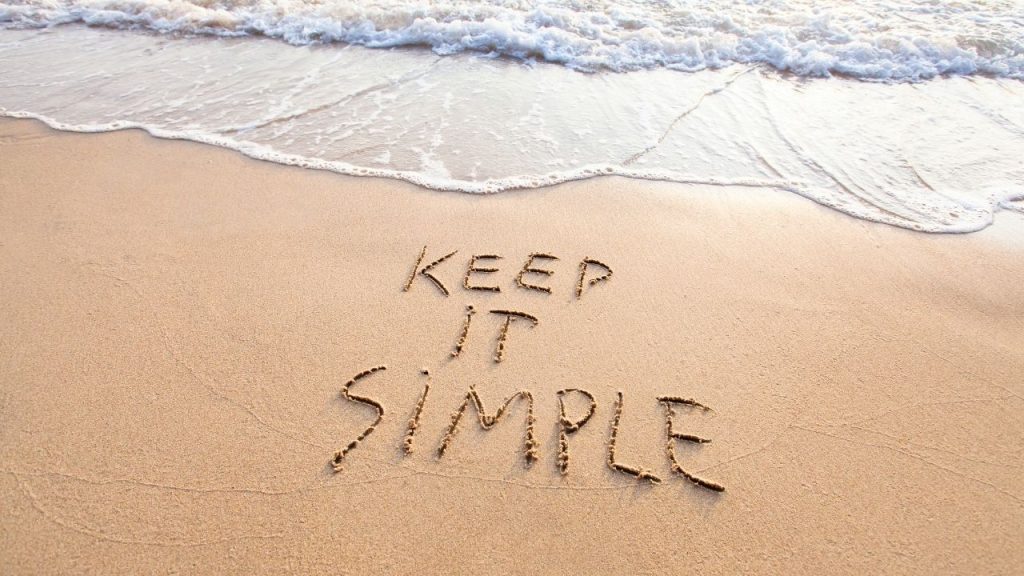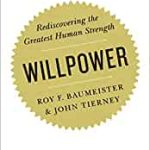
Did you know that you likely make around 35,000 decisions a day? From the moment you wake up, you face a plethora of choices. Do you wake up immediately or sleep for another 5 minutes? Do you have eggs or oatmeal for breakfast, or skip it altogether? Gym, or walk to work to get your exercise in? Should you wear the plaid jacket or the black one? You likely make hundreds of small decisions before you even get to work.
As a legal professional, decision-making is an integral part of your job. You decide on litigation strategies, negotiation options, and which clients to take on. You decide what the best marketing system is for your firm. You decide which of your internal clients gets priority. Many of these decisions have serious consequences for your clients, your firm, and your career. With all the decisions you make in a day, it is no wonder you are exhausted by the time you go to bed.
“Decision fatigue” is a real thing. It is the idea that as you make all these decisions throughout the day, your decision-making “muscle” gets tired. As the day wears on, you make worse and worse decisions until eventually you hit a wall and want to not have to choose anymore. This is not a good thing for a professional whose livelihood depends on making good decisions.
Effects of Decision Fatigue
Decision fatigue can have some significant adverse effects on our decision-making capabilities:
Reduced ability to make trade-offs
A trade-off is a decision that involves weighing each option’s positive and negative elements and eventually choosing the best one. Trade-offs are especially taxing. Making these choices depletes our energy to a greater extent than a simple yes-no choice. As we make these choices throughout the day, we lose our willpower to hold firm on further decisions and eventually accept the next bad trade-off presented to us. You can imagine this scenario playing out in prolonged contract negotiation as you consider trade-off after trade-off. Eventually, you may find yourself accepting a trade-off that you usually wouldn’t consider.
Decision avoidance
As decision fatigue sets in, you may find yourself avoiding making any decisions, especially ones that may upset the status quo. Research of Israeli parole board decisions showed that the decision-makers were more likely to approve parole in the morning or right after lunch when rested and rejuvenated. The rest of the time, the likelihood the decision-maker would approve parole dropped significantly as the day wore on. They were less likely to change the status quo, preferring to leave the prisoners behind bars than decide whether a dangerous criminal should be set free.
Impulsive decision-making
As your decision muscle gets tired, you’re likely to start making impulsive decisions without reasoning. There’s a reason grocery stores have counters with candy and snacks by the cashier. After an hour or so of making purchasing decisions, you’re more likely to throw a couple of candy bars into your shopping cart on impulse. (I know I’ve done that a couple of times, especially if they have Bounty.)
Ego Depletion/Impaired self-regulation
Making decisions can tax your mental resources to the point where you cannot effectively perform your other executive functions. You may experience what is known as “ego depletion” or a reduced ability to self-regulate. Ineffective self-regulation can adversely affect work and personal life, underachievement, and inability to meet goals. If you find yourself losing your temper and generally taking out your emotions on the wrong people at the end of the day, you may be experiencing decision fatigue. Ego depletion also leads you to make unhealthy dietary choices and indulge in destructive addictions like drinking too much.
Combating Decision Fatigue
We’re always going to have decisions to make. The trick is to conserve as much decision-making stamina we have for the critical decisions that affect our lives and careers. For the rest of them, you can consider eliminating, simplifying, delegating, automating, and reducing.
Eliminate
People like Steve Jobs and Mark Zuckerberg are famous for wearing the same outfit every day. This is one less decision they need to make each day, and that’s 365 decisions they don’t have to make every year.
What decisions could you eliminate from your life? Maybe have the same thing for breakfast. Or pack your kids the same lunch every day. (My mom used to pack us a cheese sandwich and chocolate milk every single day, and we didn’t seem to mind.) Pick brands you like and stick to them.
Developing habits and routines is another way of eliminating decisions. A morning routine before work could eliminate such decisions as “should I wake up or hit the snooze button?”, “what should I have for breakfast?”, “Should I read or work on my blog?”. These seemingly innocuous decisions add up, and before you know it, you’ve expended a good portion of your energy on minor choices before you’ve even got to work and faced with the crucial questions.
Simplify
The more options you have to choose from, the more effort it takes to make the decision. So why not eliminate as many options as possible.
If you can’t fathom wearing the same outfit every day, pare down your colour palette to a few basic colours. Barack Obama wears only blue and gray suits. In his words:
You’ll see I wear only gray or blue suits. I’m trying to pare down decisions. I don’t want to make decisions about what I’m eating or wearing. Because I have too many other decisions to make.
The minimalist lifestyle is excellent for simplifying decision-making. I personally do not subscribe to it (I like my stuff too much!), but if you do, you’re well on the road to reducing decision fatigue in your life.
Delegate
You don’t have to make every decision that comes your way, so if you can, let someone else make that decision for you.
If the outcome of a decision doesn’t matter greatly to you (like where to go for dinner or which hotel to stay at), let someone else make that decision for you.) Think about other decisions that you could delegate in your work life. You’d be surprised at how many choices don’t need your direct input. Maybe trust making appointments to your assistant. Let your junior associate take on more responsible decision-making. Even empowering your sales team to negotiate some commercial terms in a contract could alleviate your decision fatigue.
Automate
These days, we can automate nearly any routine activity. Use technology to your advantage and consider automating as much of your life as possible. Having these tasks happen in the background without your input frees your mind up to focus on critical decisions you need to make
Set up automatic payments for credit cards and bills, or even your investments. Instead of manually deciding times to set up meetings, try an automated scheduling app such as Calendly or Bookings. Use templates to draft emails you regularly send, such as for client onboarding or approving a document. (Be careful you’re not trigger happy with these tools, though. You may need to provide some input to tweak the outcome for each event, but the bulk of the decision-making will be done for you).
Reduce
Reduce the frequency at which you make decisions. Instead of deciding the same things every day, see if you can batch these decisions weekly, monthly, or even annually. The fewer times you need to make the same decision, the more your brain is freed up for the more essential tasks.
Checking emails is an example. This may seem like an innocuous task, but it wears down your decision muscle. For every email you read, you must decide to (a) respond immediately, (b) respond later or (c) ignore. And each of these decisions leads you to make more decisions. Check emails only three times a day, and you’ve conserved a lot of decision-making energy.
Planning your meals and outfits weekly is another way of reducing the number of decisions you make. Similarly, deciding on an investment plan and automating reduces what could be a monthly decision to one you only make every few years.
How I’ve Built this into my Life
Here are some examples of how I incorporate these principles into my life.
My current morning routine includes tea and the daily crossword puzzle with my wife, 30 minutes reading, working on this blog, and a cuddle session with my cat. When I worked at the startup, my workwear consisted of jeans and a neutral t-shirt, usually black or blue (yes, it was ultra-casual). Now, the decision is even less relevant since we’re working from home, but I imagine I will have a pared-down wardrobe when we return to work.

I hate deciding what to make for dinner, and we’ve simplified that decision by subscribing to a meal plan. There’s the bonus that our grocery shopping time and decisions have also reduced and we’re less susceptible to impulse buying. When we travel, I delegate my packing decisions to my wife. I trust her judgment and she’s way more organized than I am. Also, you may have seen my LinkedIn post on using a decision die to decide what to do when I have some time on my hands. Even in designing this blog, I’ve simplified my choices by choosing a straightforward black-white-red colour palette.
I’ve automated my recurring to-do list, and checking my daily to-dos is part of my morning routine. The list reminds me when I have to pay a bill, schedule a grooming appointment for the dog or even remind me to get my piano practice in for the day. This automated list frees so much mental energy as I don’t have to decide what needs to get done each day and it also keeps me on top of things.
I use templates at work a lot! I have templates for most recurring emails I send (kicking off a file, approvals of documents, emails accompanying redlines…). These have reduced the time it takes me to type out these emails and eliminated the brainpower required to decide what and how to say what I need to say. I use templates and checklists for my contract negotiation. No need to tell you how beneficial these are.
Much of my work life is spent on Zoom, negotiating with the counterparty. I try very hard not to break one golden rule – do not schedule a negotiation call for more than 60 minutes. Ninety minutes maximum, if I have to. This way I protect myself from the negative effects of decision fatigue, such as ego-depletion (I may get irritable), or reduced ability to consdider trade-offs. (The added benefit is, if 60 minutes seems too short, the parties tend to be more efficient, and, usually, there is a lot less rambling.)
What About the Important Decisions?
Obviously, you can’t eliminate, simplify, delegate, automate or reduce every decision in your life. What about those critical decisions you cannot avoid making. There are ways to make those decisions more effectively. But those are the subject of a future post.
In the meantime, by following some of these suggestions, you’ll be able to significantly reduce the number of trivial decisions you make every day. You will have more time and energy to focus on the essential decisions. You’ll be able to give more attention to the crucial decisions you are paid to make or the decisions that will truly impact your life.
Resources
For further reading related to decision making and decision fatigue, check out this post of some articles curated from the internet.
You may find Barry Schwarz’s video on the Paradox of Choice interesting to understand the effects of all the choices we have available to us, including anaylsis-paralysis.
Will Power: Rediscovering the Greatest Human Strength touches upon decision fatigue and will power. It describes the research and findings related to this topic and is quite fascinating.
If you found this article useful or learned something from it, please share with your social networks.




0 Comments
Trackbacks/Pingbacks